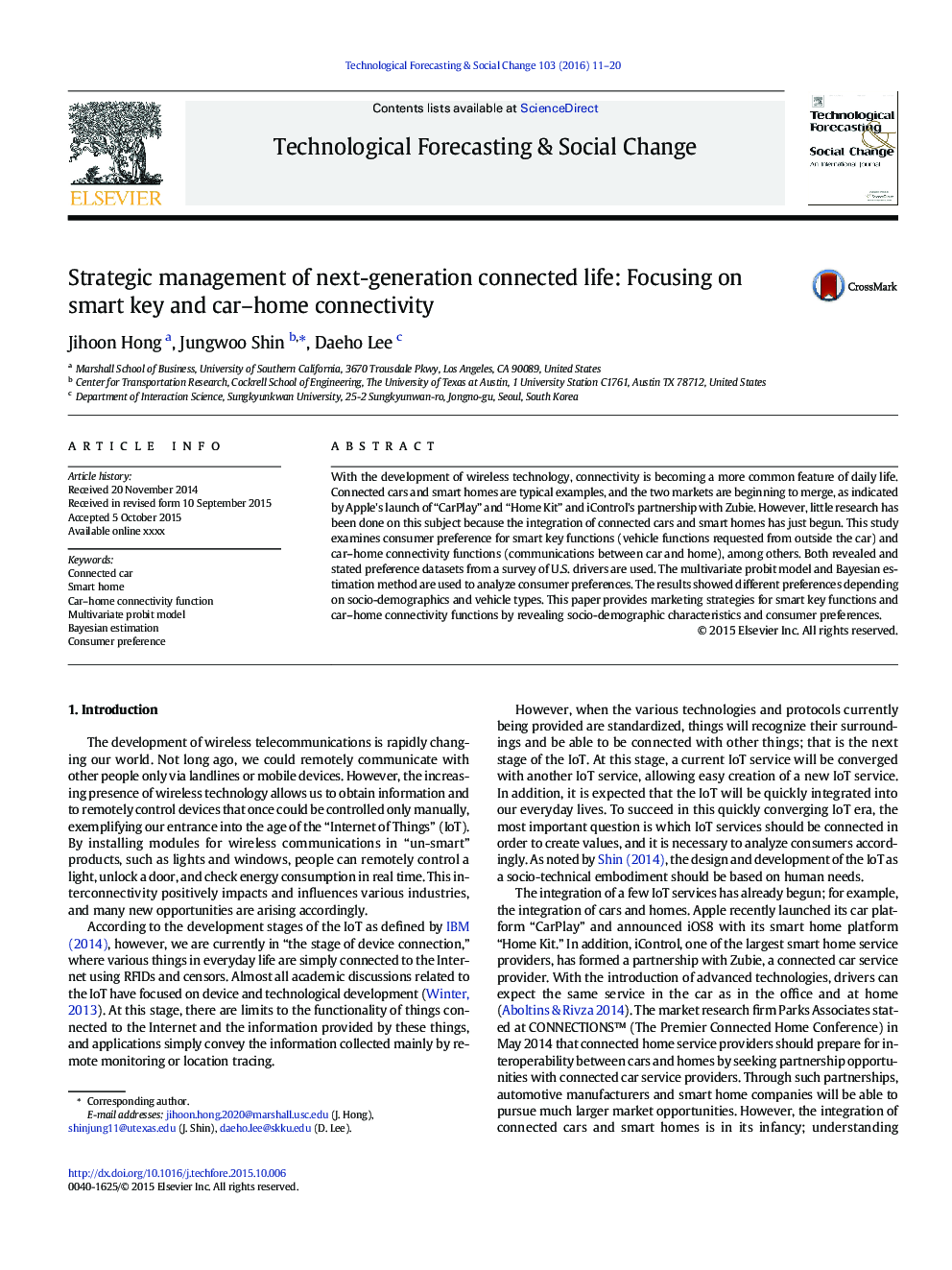| Article ID | Journal | Published Year | Pages | File Type |
|---|---|---|---|---|
| 7256152 | Technological Forecasting and Social Change | 2016 | 10 Pages |
Abstract
With the development of wireless technology, connectivity is becoming a more common feature of daily life. Connected cars and smart homes are typical examples, and the two markets are beginning to merge, as indicated by Apple's launch of “CarPlay” and “Home Kit” and iControl's partnership with Zubie. However, little research has been done on this subject because the integration of connected cars and smart homes has just begun. This study examines consumer preference for smart key functions (vehicle functions requested from outside the car) and car-home connectivity functions (communications between car and home), among others. Both revealed and stated preference datasets from a survey of U.S. drivers are used. The multivariate probit model and Bayesian estimation method are used to analyze consumer preferences. The results showed different preferences depending on socio-demographics and vehicle types. This paper provides marketing strategies for smart key functions and car-home connectivity functions by revealing socio-demographic characteristics and consumer preferences.
Related Topics
Social Sciences and Humanities
Business, Management and Accounting
Business and International Management
Authors
Jihoon Hong, Jungwoo Shin, Daeho Lee,
